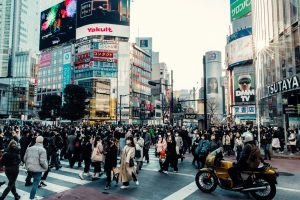The Rise of Experiential Retail: Shopping as Entertainment
The shopping experience has undergone a significant transformation in recent years, thanks to the rise of experiential retail. Shopping is no longer just about buying a product or a service, but it has become an immersive and entertaining activity for consumers. With the rise of online shopping and e-commerce, brick and mortar stores had to step up their game to attract and retain customers. The result? Experiential retail – where shopping becomes a form of entertainment. In this article, we will explore the rise of experiential retail and how it has changed the shopping landscape.
The Concept of Experiential Retail
So, what exactly is experiential retail? Simply put, it is a form of retail where the shopping experience is the main attraction, rather than just the products. It is all about creating an immersive and engaging environment for customers, where they can experience and interact with the products in a unique way. This goes beyond just offering a great selection of products and good customer service; it is about creating memorable experiences that keep customers coming back for more.
The concept of experiential retail is not entirely new. It has been around for decades, but it has gained significant momentum in the past few years. With the rise of online shopping and the convenience it offers, brick and mortar stores had to reinvent themselves to compete. This led to the rise of experiential retail, where the physical store is not just a place to buy products but an immersive destination for consumers.
The Rise of Experiential Retail
The rise of experiential retail can be attributed to the changing behaviour and preferences of consumers. With the rise of the digital age, consumers are now looking for more than just products; they want experiences. This trend has been further accelerated by the millennial and Gen Z consumers, who value experiences over material possessions. This has created a demand for unique and memorable shopping experiences.
Experiential retail is not limited to a particular industry or niche. We can find examples of it in various sectors, from fashion and beauty to food and technology. Take, for instance, Nike’s flagship store in New York City, which offers a personalized and immersive shopping experience for customers. With the “Nike by You” feature, customers can design their own shoes and get them printed on the spot. This interactive and personalized experience adds value to the shopping experience, making it more than just buying a pair of shoes.
The Benefits of Experiential Retail for Businesses
The rise of experiential retail is not just a trend; it has proven to be beneficial for businesses. Retailers who have embraced this concept have seen an increase in sales, foot traffic, and customer loyalty. By offering unique and engaging experiences, they have been able to differentiate themselves from their competitors and attract a loyal customer base.
Moreover, experiential retail allows businesses to gather valuable data and insights about their customers. By tracking consumer behaviour and interaction with the experiences, businesses can gain a better understanding of their customers’ preferences, which can help them tailor their products and services accordingly.
The Future of Experiential Retail
The future of experiential retail looks promising as more and more businesses are jumping on the bandwagon. With the continuous evolution of technology, there are endless possibilities for creating immersive and interactive experiences that can elevate the shopping experience to a whole new level. Virtual reality, augmented reality, and artificial intelligence are just a few technologies that can be utilized to create memorable and engaging experiences for customers.
The Rise of Experiential Retail: A Win-Win Situation
In conclusion, experiential retail is here to stay, and it is a win-win situation for both businesses and consumers. With the rise of online shopping, physical stores had to evolve to stay relevant, and experiential retail offers just that. It provides customers with unique and memorable experiences while offering businesses a competitive edge and increased sales. As consumers continue to demand more from their shopping experiences, we can expect to see the rise of experiential retail expanding to new frontiers in the future.










